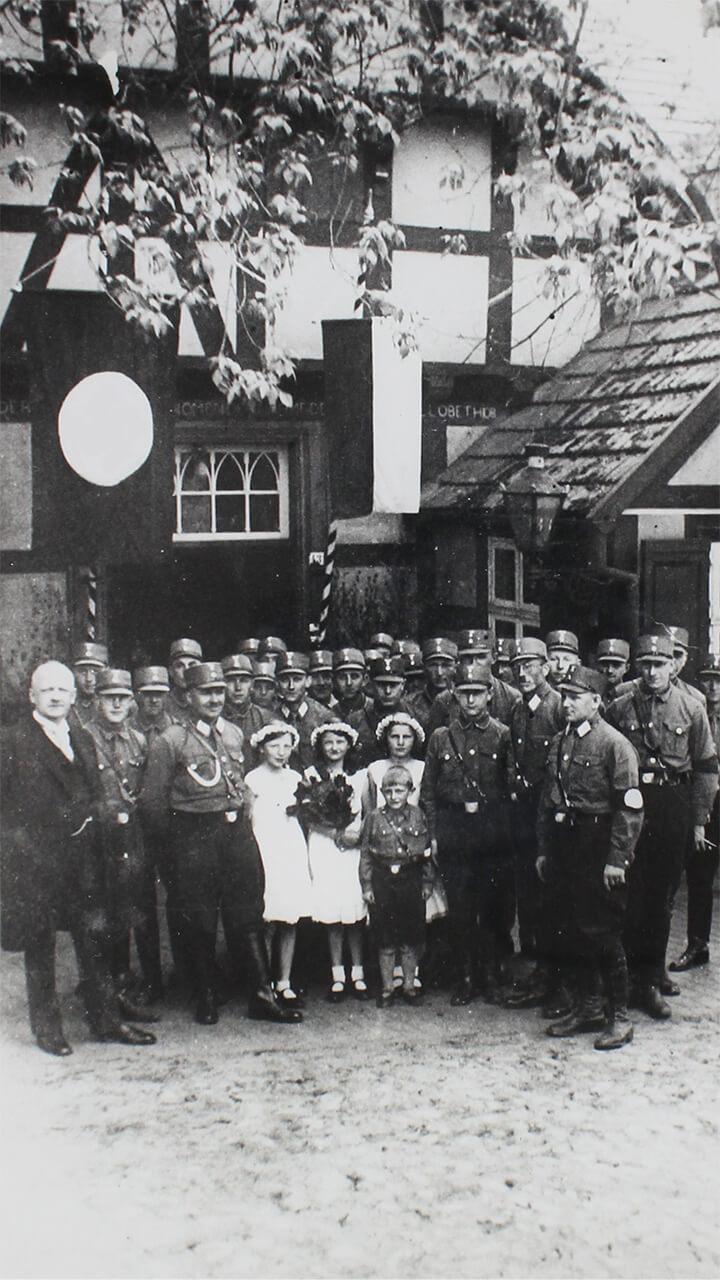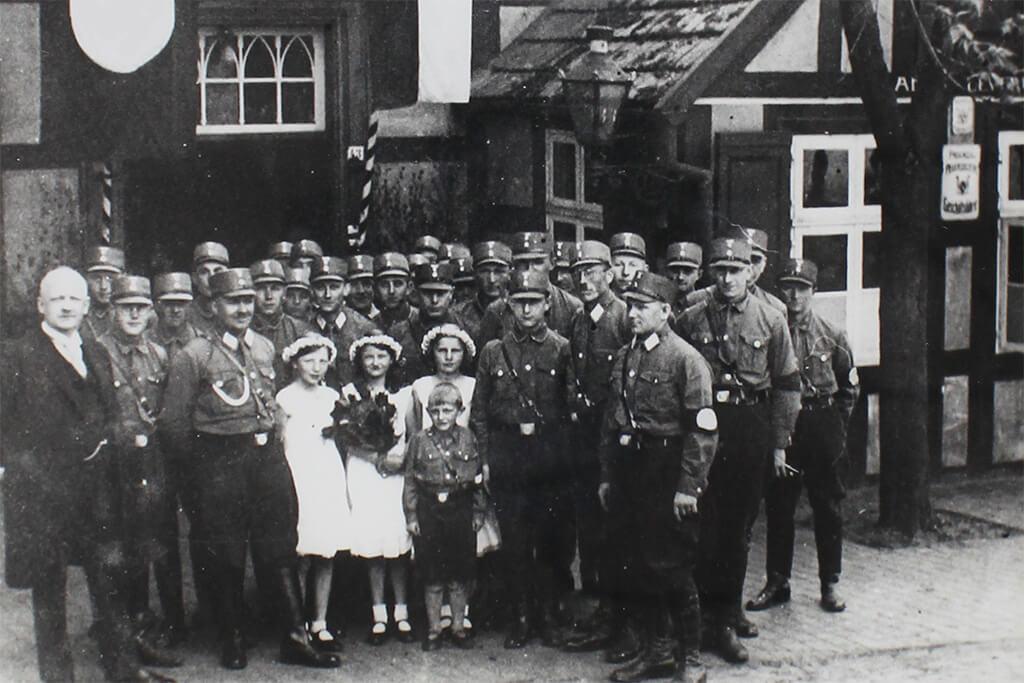
The district administrations of Dielingen-Wehdem and Levern ensured that National Socialist policies were implemented in the villages.


The district administrations of Dielingen-Wehdem and Levern ensured that National Socialist policies were implemented in the villages.

When the Nazis came for the Communists, I kept quiet; I wasn't a Communist.
When they came for the trade unionists, I kept quiet; I wasn't a trade unionist.
When they came for the Jews, I kept quiet; I wasn't Jewish.
When they came for me, there was no one left to protest.
Martin Niemöller, Protestant pastor, founding member of the Pastors' Emergency League, later the Confessing Church (BK). He spent the last seven years of the National Socialist dictatorship in concentration camps. The pastors of Dielingen/Wehdem and Levern belonged to the Confessing Church and came into conflict with the local administrations over time.

The balance of power in the politics of the Weimar Republic (1918 - 1933) was determined, as it is today, by general and free elections and the coalitions that then formed. Elections and coalition negotiations were also influenced by current conditions at the time. The global economic crisis of 1928 and its consequences for Germany caused particular hardship for the people. People blamed the established parties for this. Voting behavior and, of course, the election results changed.
After the elections at the end of 1932, following coalition negotiations and the appointment of Adolf Hitler as Reich Chancellor (January 30, 1933), the NSDAP came to power as a party. It very quickly created facts. "Old fighters" of the NSDAP (long-serving party members) were placed in the administrations. The first "old fighter" to be accommodated in the district of Lübbecke was a worker and SA storm leader from Drohne. He had been a member of the NSDAP since March 1931 and of the SA since June 1931. He was employed as a district road warden in January 1934. The other parties were disbanded in the first few months after the takeover. The police force was supplemented by SA members (Sturmabteilung). The Secret State Police (Gestapo) was set up in conjunction with the Schutzstaffeln (SS). In the Dielingen-Wehdem district, for example, the district mayor was the concentration leader and thus a recipient of orders from the party organization. This was done quite publicly, even in the village communities. The "Führerprinzip" - based on the strictly hierarchical principle of "Führer command, we follow!" - had prevailed. After the war, incriminated individuals were evaluated by the Allied military government in so-called "denazification processes" and, if necessary, dismissed from the administrations.
The local registry offices ensured compliance with the National Socialist "race laws" and forced sterilizations, and made teachers responsible for denunciation. The establishment of HJ homes, harvest kindergartens and the awarding of "rewards" such as the mother crosses were intended to strengthen acceptance and ensure education in the spirit of National Socialism.
from "Zwischen Fahnenspruch und Dreschkasten", © Medienwerkstatt Minden-Lübbecke e.V. on behalf of the municipality of Stemwede
We have some exciting questions for you. Have you been paying attention? Do you know the answers? Try it out. Here's how it works: